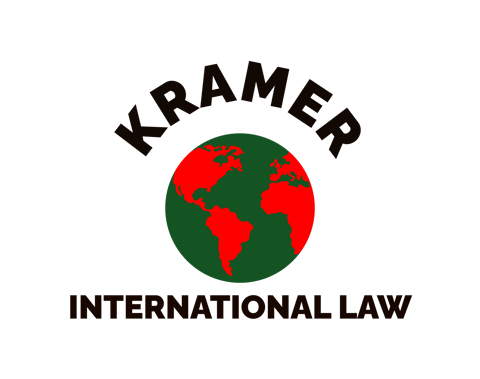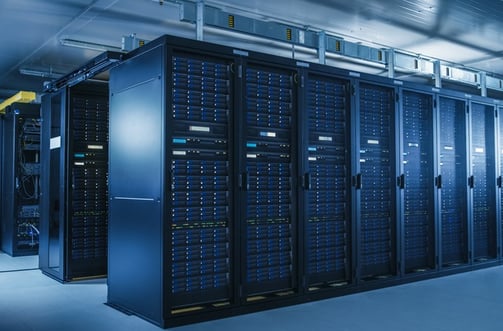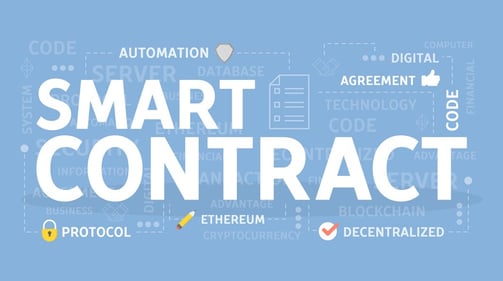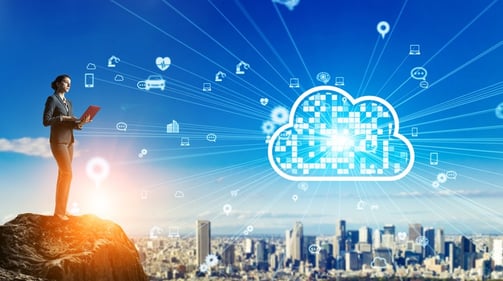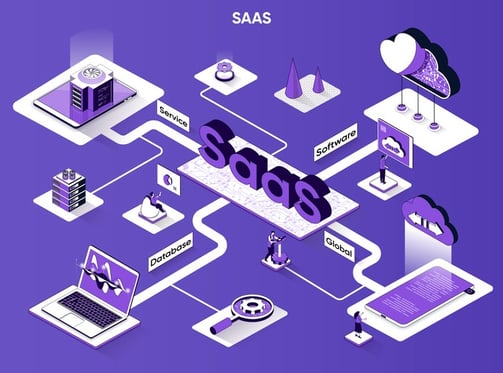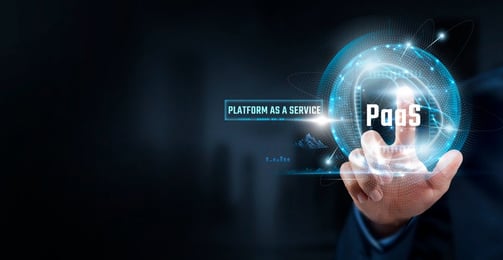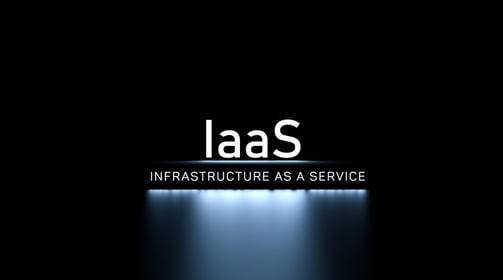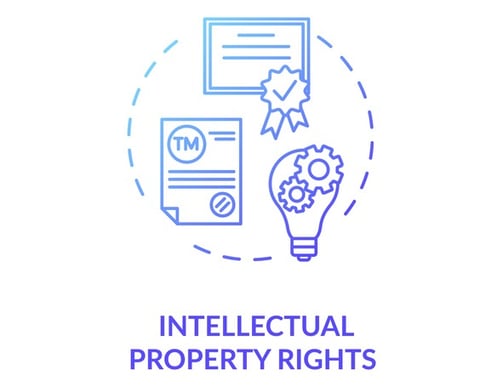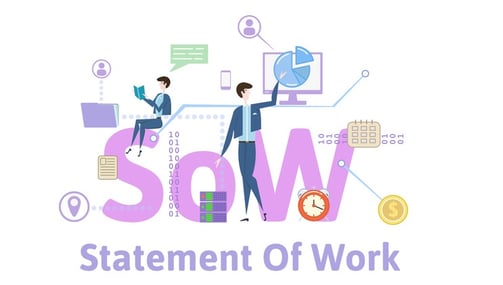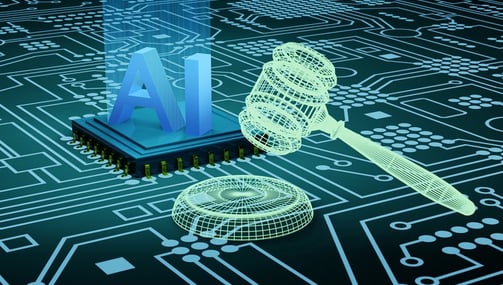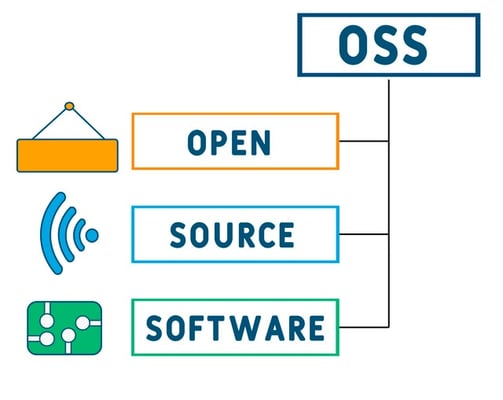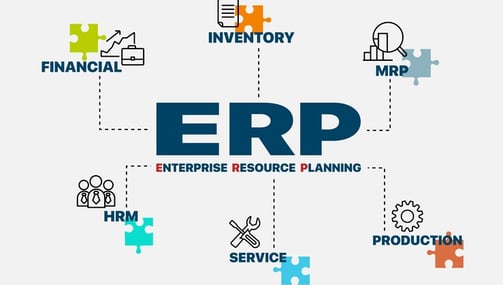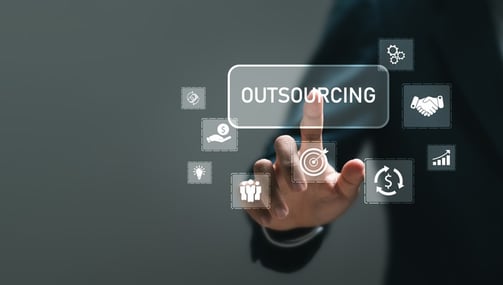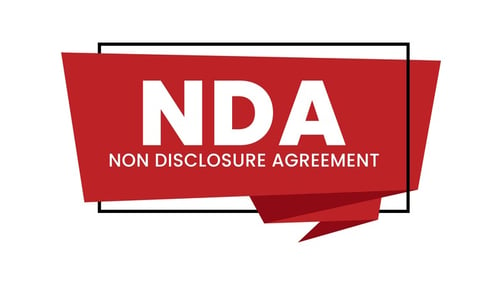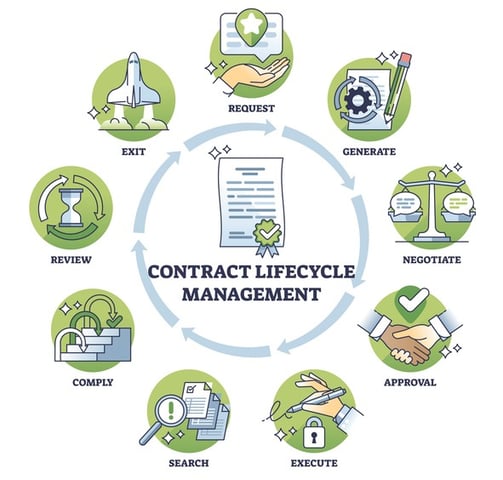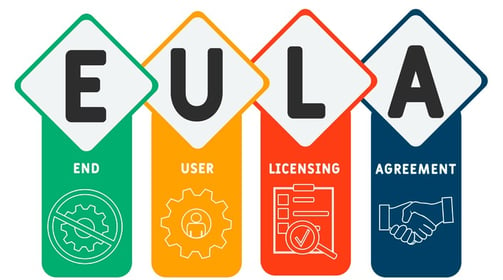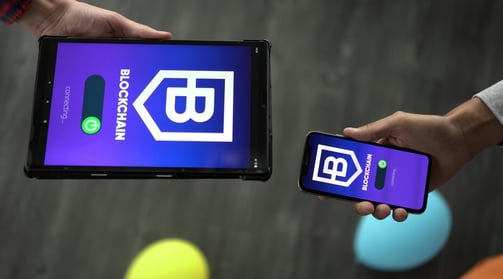Technology Transactions
In today's fast-paced, technology-driven environment, technology contracts are crucial. These agreements outline the terms and conditions for acquiring, developing, or using products and services. Their purpose is to create a clear mutual understanding among the involved parties, improve efficiency, reduce risks, promote accountability, and achieve desired business outcomes.
When it comes to technological products and services, technology contracts serve as essential tools for managing relationships and business operations. They outline the rights, responsibilities, and obligations of all parties involved, providing a legal framework for both conducting business and resolving disputes.
Technology contracts play a pivotal role in shaping relationships and transactions within the tech industry, and increasingly, in business as a whole. Virtually every company depends on technology, regardless of industry. At Kramer International Law, we offer innovative solutions for technology law issues, ranging from the most common to the most intricate.
Contracts are often the cornerstone of successful technology projects. They define how information technology (IT) teams collaborate, establishing the rules for businesses, vendors, and technology providers to work together effectively. Service Level Agreements (SLAs), Software Licensing Agreements, End User License Agreements (EULAs), and Data Processing Agreements (DPAs) all play important roles in managing risks, protecting intellectual property (IP), and guiding the delivery of technology services.
While technology contracts are essential for tech business transactions, promoting innovation, collaboration, and growth, the complexity and dynamics of the technology industry demand more than legal expertise; they require a deep understanding of industry trends and nuances.
By combining legal expertise with industry knowledge and technological insight, legal professionals focusing on technology contracts can more effectively manage disputes, protect their clients’ interests, and increase the chances of success for technology-driven enterprises.
Whether you are developing new software, navigating cloud contracts, or securing complex technology deals, Kramer International Law is a law firm you can trust.
We possess the legal and commercial knowledge and experience necessary to achieve the results you seek, such as advising on SLAs, software licenses, cloud computing, major systems procurement and implementation, voice and data communication services, data centers, and IT outsourcing.
In addition to the fact that our founding lawyer is licensed in the US, Canada, and England & Wales, we collaborate with a network of thoroughly vetted law firms worldwide to provide you with suitable solutions wherever needed.
Technology transactions can be challenging. We draw on our global experience and industry-standard insights to assist businesses in navigating their complexities and maximizing their opportunities.
Despite all efforts to draft comprehensive contracts, disputes can still arise, often due to misunderstandings, unforeseen circumstances, or changing business needs.
In such scenarios, the knowledge and experience of legal professionals focusing on technology matters becomes indispensable. These professionals have a profound understanding of legal frameworks and industry insight into the complexities of technology transactions.
The tech industry operates within a framework of established norms and industry standards that govern everything from software development protocols to cybersecurity practices. Lawyers well-versed in technology ensure that contracts strictly adhere to these standards, minimizing risks and ensuring compliance in a constantly evolving regulatory environment.
Understanding Clients’ Business Requirements
Technology contracts are more than just legal documents; they are critical tools for streamlining business operations and achieving strategic goals. Legal professionals who understand the tech sector recognize the broader commercial implications of contractual terms. They skillfully balance legal requirements with practical business needs, ensuring that contracts fulfill legal obligations while supporting the overall interests of all parties involved.
The Importance of Building Relationships
In the event of disputes or challenges, effective resolution often relies on collaborative efforts and constructive dialogue among stakeholders. Lawyers skilled in technology frequently excel at enhancing communication and teamwork, facilitating discussions, and mediating disputes. By valuing positive relationships and encouraging a spirit of cooperation, they assist in navigating complexities and finding mutually beneficial solutions, ultimately promoting long-term business success.
We work with clients and industry experts to create effective contractual frameworks. This encompasses new contract models and risk profiles for digital transformation, enterprise resource planning (ERP), mobility, artificial intelligence (AI), automation, data analytics, data management, and cloud-based “as-a-service” models, among other solutions.
Whether identifying and leveraging newly developed software or drafting and negotiating agreements to maximize the value of related IP and other intangible technology assets, we collaborate with technology companies to help them achieve their domestic and international goals.
Numerous challenges may emerge during a technology transaction's lifecycle, including corporate governance, employee issues, privacy and data protection, taxation, auditing, business cases, insurance, and assorted regulatory and IP matters.
We provide ongoing support for technology transactions long after the initial agreement has been finalized. Our guidance aids clients in managing lasting relationships with suppliers, establishing sustainable governance models, and addressing disputes effectively. By focusing on post-transaction execution, we empower our clients to improve their arrangements and achieve both value and cost savings.
We guide our clients through the complexities of legal and commercial issues that arise from the acquisition, development, adoption, and commercialization of new technologies and IP assets across a diverse range of innovative industries.
In our work with clients, we prioritize governance over contract administration. We have created panel governance systems and tools aimed at enhancing collaboration and cooperation between the customer and its suppliers in a multi-vendor IT environment. This approach not only improves cooperation and efficiency but also adjusts to unforeseen changes and developments in a systematic and disciplined manner.
We negotiate and structure agreements while providing business advice on legal and commercial challenges in complex multijurisdictional technology and IP transactions. This includes mergers and acquisitions, software and IT licensing and procurement, patent licensing and monetization, outsourcing agreements, as well as development, collaboration, joint ventures, and distribution arrangements.
We represent both customers and suppliers, which enables us to understand the perspectives from both sides and facilitate solutions.
We acknowledge the differences between Agile and waterfall software development approaches and steer clear of a one-size-fits-all strategy.
The use, distribution, and licensing of software and technology are typically governed by legal terms that protect the IP rights of the owner and grant permission for others to use or exploit the IP. Below is an overview of various types of technology contracts, their common practical applications, and some supplementary documents that accompany these contracts.
Intellectual Property (IP) Licensing Agreements
An IP license agreement is a legal contract that authorizes the use, creation, or sale of IP in exchange for adequate consideration. A license allows one party to use the IP, while the other party retains ownership. An entity may choose to license its IP for various reasons, such as enabling the creation of derivatives or further distribution of the IP. An IP license agreement can also be attractive to the licensee, as it grants access to established IP.
We assist both IP licensors and licensees in exploring innovative strategies for transferring, licensing, safeguarding, and maximizing the value of essential IP assets and their revenue opportunities. By utilizing advanced data analytics, we can prepare and analyze various licensing agreements—ranging from traditional patent and software licenses to innovative revenue-sharing arrangements for emerging technologies.
Software Licensing Agreements
A software licensing agreement is a legal contract in which a licensee obtains a license from the software owner, referred to as the licensor, to install and use the software on their systems. This agreement also outlines the rights granted to the licensee regarding the permitted use of the software.
A licensee may use the licensed software for various purposes, such as managing aspects of its business or communicating with employees and customers. Typically, a software licensing agreement is supplemented with additional policies and terms. Such an agreement can generate revenue for the licensor and helps ensure that the licensor retains ownership and control of its IP rights in the software.
Software as a Service (SaaS) Agreements
A SaaS agreement is a contract in which a customer receives software services from a service provider. This agreement grants the customer access to software hosted on the service provider's server, rather than the software being present on the customer's own server or hardware.
SaaS agreements generally include a separate service-level agreement and a privacy policy as supplementary documents.
We work with our clients to identify the business reasons for per-user licensing, usage-based limitations, and other essential factors.
Platform as a Service (PaaS) Agreements
PaaS is a sales model in which customers buy virtual access to the servers necessary for designing and deploying applications. The PaaS provider oversees the underlying cloud platform that PaaS customers utilize to create and run their applications.
PaaS products enable businesses and developers to create and deploy consumer-facing apps, all hosted in the cloud.
Companies pay to use a platform for creating, managing, distributing, and testing applications, allowing developers to focus on their work without having to be concerned about software upgrades, operating systems, storage, or other infrastructure elements.
Infrastructure as a Service (IaaS) Agreements
IaaS providers offer access to virtualized resources, such as servers, networks, and storage. Enterprise customers usually acquire these computing resources on-demand, making it more cost-effective than purchasing the necessary hardware outright.
Unlike SaaS users, IaaS customers are responsible for managing their applications, runtime, middleware, operating systems, and data. Meanwhile, IaaS providers take care of the servers, hard drives, networking, virtualization, and storage.
Distribution Agreements
A distribution agreement is a legal contract in which an IP owner designates a distributor to sell, distribute, or sublicense its IP (such as software) to other parties within a specific territory, whether domestically or internationally. This category of agreements includes various types, such as reseller agreements, value-added reseller agreements, franchise agreements, and original equipment manufacturer agreements.
In practice, these types of agreements are commonly used to commercialize IP. IP owners may choose distribution agreements to maximize product revenue or take advantage of the competitive benefits they provide in the marketplace. However, software distribution agreements may also lead to antitrust concerns. Therefore, parties on both sides of the distribution agreement should at least partially consider the impact of the licensing arrangement on competition within their respective markets.
Professional Services Agreements
A professional services agreement is a legal contract used to secure the services of a qualified professional or business for a specific period. It may include a statement of work (SOW), which is incorporated by reference into the underlying agreement after negotiation and execution.
In practice, professional services agreements are frequently used for IP or technology-related services, including marketing, auditing, website design and development, and program management.
Development Agreements
In a software or IP development agreement, a contractor, programmer, inventor, or developer is hired to create new IP or a customized software application. These agreements for software development involve professional services and require a clear transfer of ownership from the developer to the client. Typically, they include an invoice or order form submitted by the buyer to detail their request and the agreed fees.
If a company is considering entering into a technology contract, it should consult with legal counsel to identify the appropriate contract form for its needs, ensure compliance with applicable laws, and effectively protect its IP rights during the drafting process.
When outsourcing software development, a software development agreement outlines the project's scope, milestones, deadlines, IP rights, and other essential elements. It clarifies the responsibilities of both parties and seeks to ensure that the software produced aligns with the expected specifications.
Service Levels, Service Credits and Liquidated Damages
We offer guidance on SLAs and draft appropriately worded provisions concerning service credits and delay damages.
Many of the agreements we handle involve multiple service levels, service credits, and liquidated damages provisions.
SLAs are crucial components of IT vendor contracts. An SLA consolidates information about all the contracted services and their expected reliability into one document. It clearly outlines metrics, responsibilities, and expectations, ensuring that neither party can claim ignorance in case of service issues. This ensures that both parties have a common understanding of the requirements.
Any important contract without a corresponding SLA that legal counsel has reviewed is susceptible to both intentional and unintentional misinterpretation. The SLA protects the interests of both parties involved in the agreement.
Strategic Alliances and Collaboration Agreements
Strategic relationships can yield mutually beneficial outcomes when organized and executed effectively, prompting companies to frequently form alliances that leverage technology-driven products and services.
At Kramer International Law, we create both traditional and innovative agreements for companies seeking partnerships. This encompasses collaboration with standards-setting organizations (SSOs), embracing new technologies, and exploring new markets.
SEP Licensing Advice and SSO Structuring
We possess a deep understanding of the issues surrounding standard essential patents (SEPs) and standard-setting organizations (SSOs). We assist clients in their interactions with SSOs, addressing matters related to licensing and disclosure obligations.
Technology Joint Venture Transactions
We assist our clients in forming technology joint venture (JV) arrangements with other parties. Many of these transactions involve cross-border deals and can be structured as either equity or contractual JVs. In collaborative technology projects among two or more entities, these joint venture agreements outline the terms of the collaboration, including resource sharing, profit and loss allocation, and decision-making authority.
Master Service Agreements (MSAs)
MSAs provide a foundational framework for ongoing relationships between parties. In the technology sector, where continuous collaboration is common, an MSA outlines the general terms and conditions that will govern subsequent work orders, statements of work (SOWs), and project-specific agreements.
AI
The applications of AI cover a broad spectrum, from supply chain management and medicine to gaming, the arts, and beyond. Specifically, the emergence of generative AI introduces a multitude of intricate legal issues—including copyright, patent, trade secret, privacy, security, ethics, and compliance concerns. We help clients navigate this evolving landscape to achieve business goals and accelerate growth while staying abreast of the rapidly shifting legal and regulatory environments.
Cloud Hosting
We advise cloud hosting providers to help tackle and overcome challenges they encounter. Our work involves offering guidance on re-platforming and hosting, processing regulated data, and managing IP rights.
Open-Source Software (OSS)
We guide our clients through all aspects of OSS issues, covering a variety of topics related to the use and contribution of OSS, including:
1) Assessing proposals for OSS use or contributions of proprietary code to OSS projects;
2) Crafting OSS policies and offering training to engineers and programmers;
3) Analyzing OSS development tools;
4) Supporting OSS audits;
5) Representing clients facing accusations of OSS license infringements;
6) Conducting OSS due diligence and reviewing OSS code composition reports; and
7) Offering guidance on OSS agreement terms, including OSS representations and warranties.
Enterprise Resource Planning (ERP) and Other Major Platform Implementations
We assist clients with cloud solutions, particularly ERP software systems that enable organizations to automate and streamline essential business processes for enhanced performance. Our consulting spans various areas, such as advanced inventory management applications, healthcare payment platform implementations, supervision of warehouse management software, and carefully handled electronic health records (EHRs).
Consulting, Development and Implementation
Ongoing product development and swift commercialization are critical for maintaining a competitive edge in today’s market. In the tech industry, consultants frequently offer specialized expertise to assist businesses in making informed decisions. More companies are turning to external experts to help speed up the evaluation, development, and launch of new products and commercialization strategies. We guide clients in establishing third-party consulting, development, and implementation arrangements that create a framework for IP protection and future business success. Consulting agreements specify the services to be provided, along with expectations, compensation, and deliverables, ensuring a clear understanding of these arrangements.
E-Commerce
The online sale of goods and services, along with the exchange of information, is vital for nearly all businesses today. Utilizing cloud computing and open-source software has become standard for most organizations. However, these e-commerce advancements bring various business and legal challenges, including security and privacy issues, IP rights, and contractual matters, especially amid increasing regulatory scrutiny. We collaborate closely with our clients to pinpoint and create strategies that mitigate or eliminate these risks.
Along with e-commerce terms unique to your products, we can assist in preparing shipping and return policies.
Rights and Services Concerning Data
Data rights can serve as a vital business asset, enabling companies to differentiate their offerings. However, challenges such as aggregation, compliance, retention, security, usage restrictions, and other issues can pose barriers to technology transactions. We lead the way in developing best practices and contract models to aid our clients in the collection, use, protection, and commercialization of data.
Technology Contract Workflow
As the pace of technological innovation has accelerated, the volume of technology transactions has soared. We help our clients manage that workflow efficiently and effectively. Whether it involves drafting standard agreements, supporting peak demands, or overseeing entire contract portfolios, we work closely with in-house legal counsel and procurement teams to reduce legal barriers.
Outsourcing Agreements
Tech companies frequently outsource specific functions or services to specialized providers. Outsourcing agreements detail the scope of work, service levels, performance metrics, and responsibilities of the parties, ensuring that the outsourced operations align with business objectives.
Outsourcing transactions are complex and require specialized skills. Kramer International Law has relevant experience in managing outsourcing transactions, as well as innovative and strategically significant process-specific transactions
Subcontractor Agreements
When a tech company outsources specific tasks to subcontractors, subcontractor agreements establish the relationship, responsibilities, and expectations between the contractor and the subcontractor.
Non-Disclosure Agreements (NDAs)
NDAs are essential when sharing sensitive information with external parties like vendors, partners, or contractors. In the technology sector, where IP and proprietary information are crucial, NDAs help ensure that confidential information remains protected and is not disclosed or used without authorization.
Hardware Purchase Agreements
When acquiring hardware, such as servers or networking devices, hardware purchase agreements specify the terms of purchase, warranties, maintenance, and any additional services that may be included with the hardware.
Escrow Agreements
In scenarios where third-party vendors supply essential software, an escrow agreement protects access to the source code and related materials. This helps reduce risks in situations where financial troubles or other challenges may be encountered.
Maintenance and Support Agreements
These agreements are typical for software and technology products. They outline the conditions under which the provider will deliver ongoing maintenance, updates, and technical support for products or services.
Collaboration Agreements
In situations where multiple parties work together on a tech project, collaboration agreements specify the roles, responsibilities, IP rights, and profit-sharing arrangements of each collaborator.
Contract Lifecycle Management (CLM)
CLM software is an essential tool for managing technology contracts. It provides a centralized platform that simplifies the entire lifecycle of tech contracts, from creation and negotiation to execution and renewal. Given the complexity of IT initiatives, CLM software ensures that vital contractual details are never overlooked, promoting transparency, accountability, and compliance. This technology-driven solution empowers IT teams to efficiently manage contract terms, monitor performance against SLAs, and ensure timely renewals, thereby minimizing risks, fostering collaboration, and supporting the overall success of technology-driven projects.
Web and Application Terms and Licensing
It's common for us to accept terms and conditions online. These agreements go by various names, such as "Terms of Use", "Terms of Service", "End-User License Agreements" (EULAs), and "User Agreements". Although many individuals quickly overlook these terms and conditions, they establish the relationship between software providers and their users. We create customized agreements that cater to the needs of your specific business and industry.
Mobile Applications
We create mobile app terms that impose suitable restrictions on users, data sharing, and other critical factors.
Gaming
We create custom gaming terms for console gaming, online competitive play, and eSports.
The Kramer International Law Advantage
We offer guidance on every aspect of technology transactions, allowing our clients to effectively acquire, transfer, and safeguard their technology assets, enhance their products and services, and utilize technology to improve and expand their businesses.
Our legal and business acumen uniquely equip us to assist companies in structuring and negotiating successful transactions and facilitating related system implementation. We create innovative deals that enable companies to stay at the forefront of technology. With our experience balancing law and business, we excel at negotiating, drafting, and closing technology contracts.
We help our clients negotiate their most complex and significant technology contracts, develop secure and compliant platforms and products, and maximize the value of their data and IP assets.
Kramer International Law assists clients in negotiating key strategic alliances, joint ventures, collaborations, outsourcing, and cloud agreements, as well as IP and technology licenses across various industries and market sectors. We support clients in developing strategies to safeguard and maximize the use of technology and data in a constantly evolving internet landscape and increasingly stringent regulations.
Our firm stands out as a boutique firm that guides and provides legal advice to clients on technology transactions according to the laws of the US, Canada, and England & Wales. In the realm of cross-border transactions in our increasingly interconnected world, our international capabilities and experience offer significant value to our clients, which can translate to a competitive advantage over their competition.
